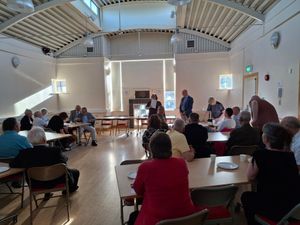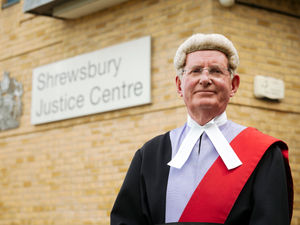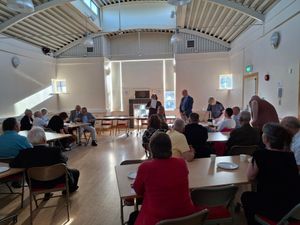'Don't reply to DMs': Social media guidance given to Shropshire councils
“Guesswork, exaggeration and colourful language” should be avoided by councillors on social media, according to guidance from a county-wide local government organisation.

The Shropshire Association of Local Councils has distributed a suggested social media policy for town and parish councils to consider adopting.
The three-page document acknowledges local councils can use Facebook, Twitter and other channels to “remind people of important events and alert followers instantly to breaking news”, “link to interesting and useful information” and “communicate better with those using mobile devices”, but advises the parish clerk alone sets up and manages accounts.
Staff, it recommends, should use their personal accounts responsibly, and the council may request the removal of posts or comments that disclose confidential information or defame it.
The policy says official accounts should only be set up by the clerk and with the council’s consent and only used by authorised staff.
“Social media accounts will primarily be used to promote ‘good news’ and information supplementing content already published on the parish council’s website,” it says.
“Any employee, councillor or member of the public who becomes aware of social networking activity that would be deemed distasteful should make the parish clerk aware as soon as possible.”
Reactive monitoring
Facebook accounts should be “reactively monitored”, with comments “containing abusive, obscene, indecent or offensive language, or linking to obscene offensive material” removed and serious or persistent offenders banned.
On Twitter, local councils should “not normally reply to direct messages” because “the limitations of Twitter’s format mean we would not be able to give a full and useful reply”, the policy says. It instead suggests councils direct users to the contact form or addresses on its own website.
Council staff, it says, need to use their personal accounts “in a way that does not conflict with the terms of their contract of employment”.
“If the parish council is referred to in a way that is deemed defamatory or confidential information is disclosed, it reserves the right to report the comment and request that it be removed.”
Councillors’ personal accounts should be “clearly identified as personal” and “not in any way imply that they reflect the council’s view”.
“Councillors should at all times present a professional image and not disclose anything of a confidential nature,” the policy says.
“Comments of a derogatory, proprietary or libellous nature should not be made and care should be taken to avoid guesswork, exaggeration or colourful language.”
Hadley and Leegomery Parish Council will consider adopting the draft SALC policy when it meets on Tuesday, November 5.
In an article, National Association of Local Councils solicitor Gurvynda Paddan-White wrote that social media platforms “are increasingly used for breaking news and community updates; their usage in local meetings and by authorities is replacing traditional media such as newspapers and radio broadcasts”.
She added: “Used correctly, social media can be a key communications tool and can encourage healthy debate, sharing of views and information among a wider audience.
“Used incorrectly, is can cause embarrassment, ridicule and damage to the reputation of a council.”





